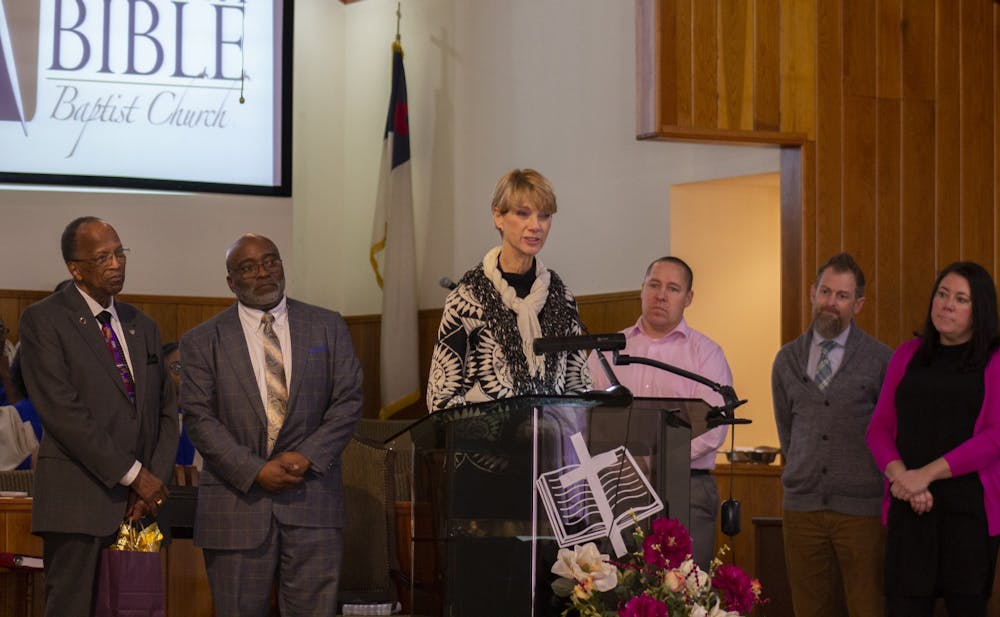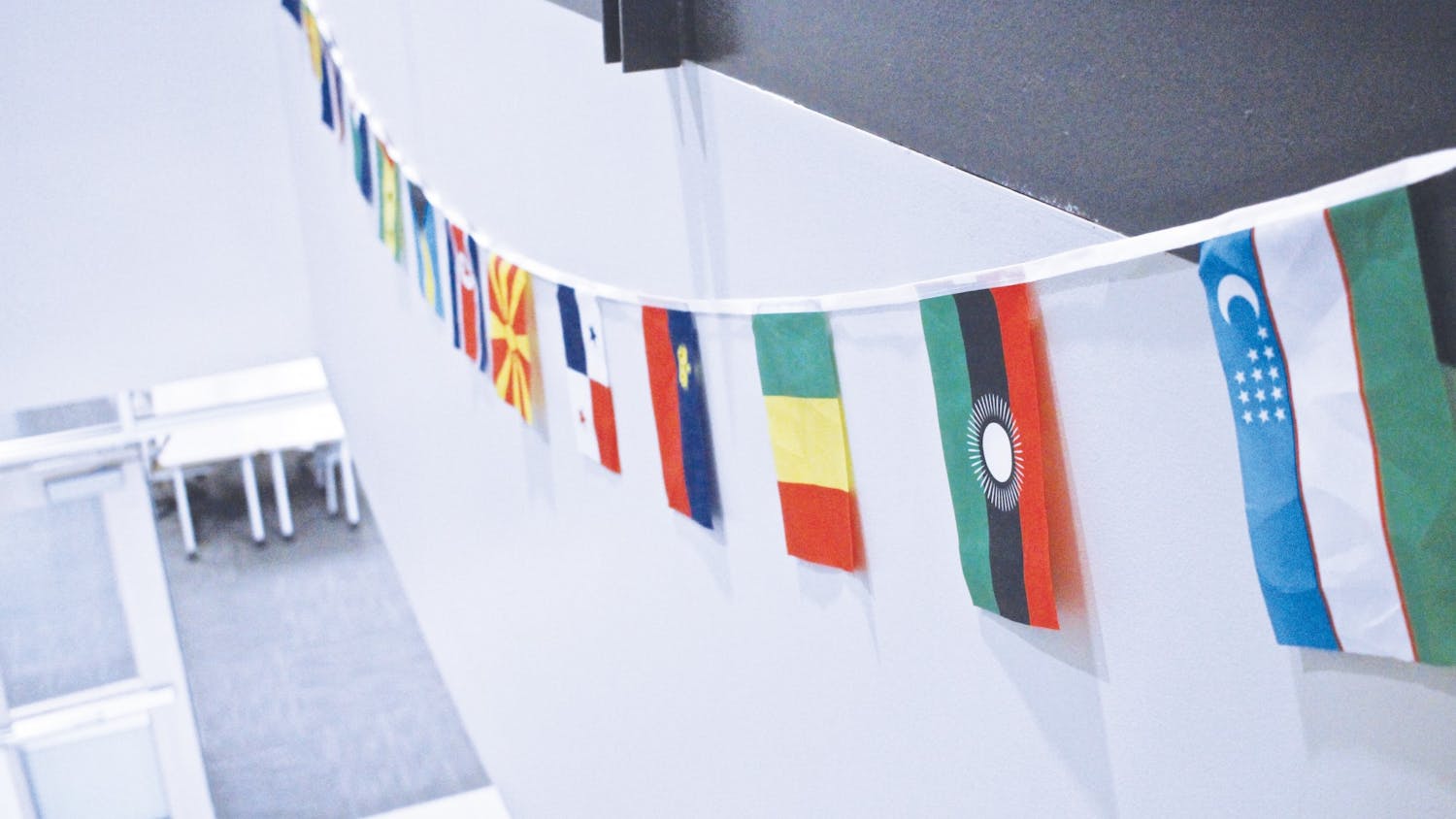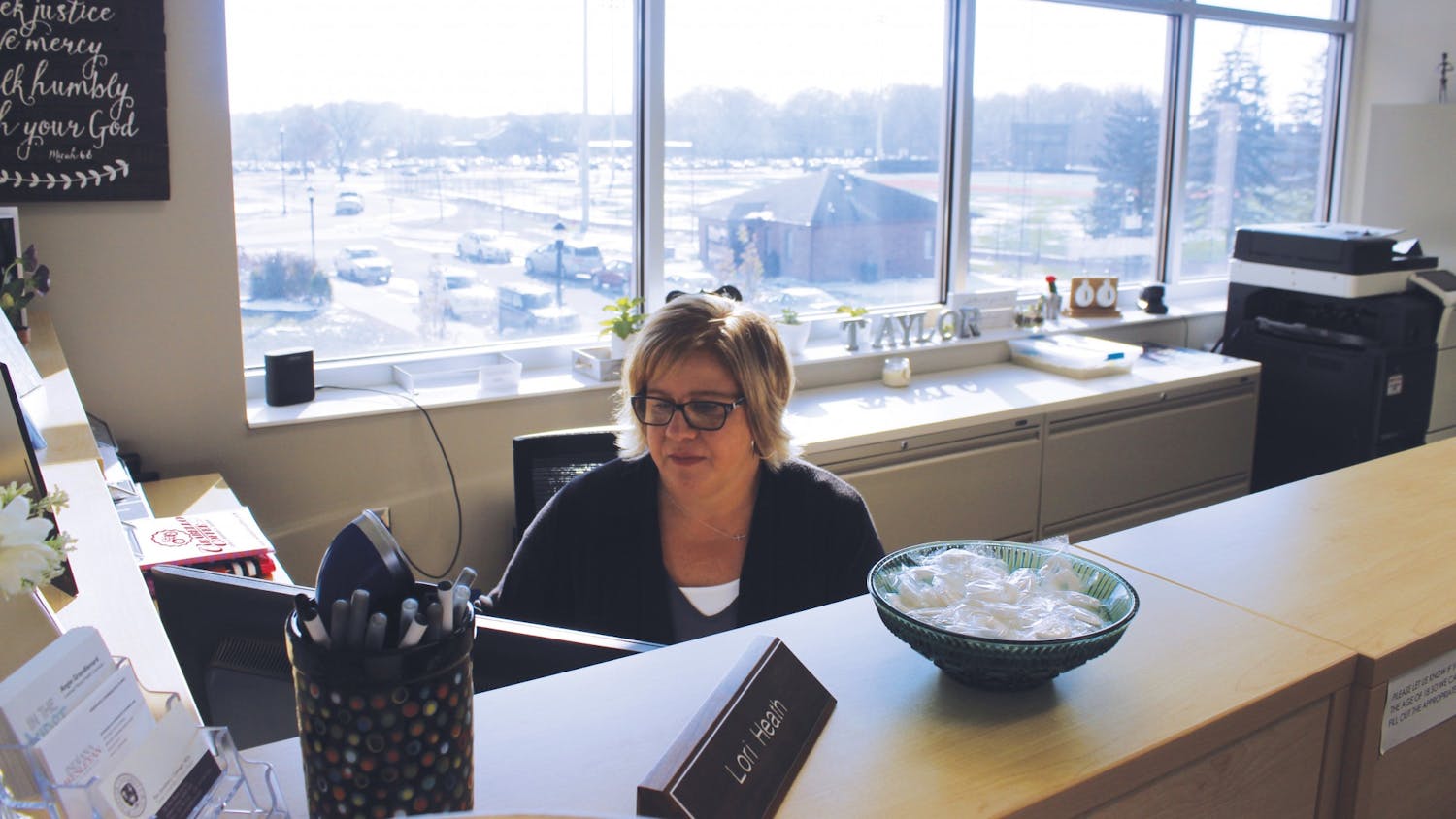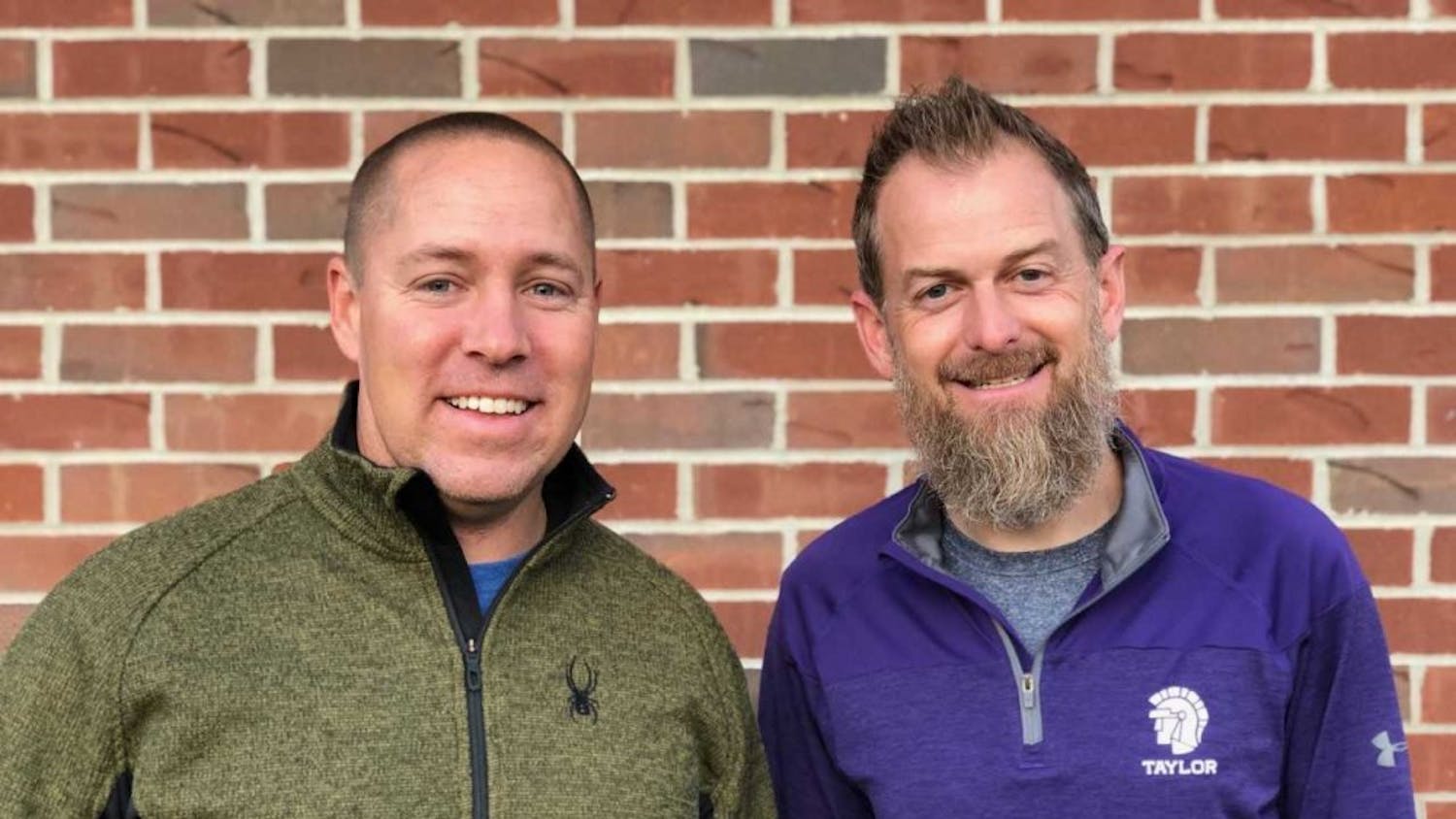What do the president of Taylor University, a photographer, a student and an alumna all have in common?
On paper, it may appear they simply share a college, but these individuals discovered they share more than this on the Civil Rights Bus Tour. These people bonded together over the pain and reconciliation they experienced from learning about the civil rights movement.
The weekend leading up to Martin Luther King Jr. Day consisted of long drives and lengthy conversations on a double-decker, American flag-painted bus. Twenty-nine people including Taylor alumni, Interim President Paige Cunningham, and a few students including Student Body Vice President and senior Tali Valentine, traveled together across multiple states on the Civil Rights Bus Tour.
“It's probably one of the most diverse groups that Taylor could put on a bus,” Valentine said. “We have people from so many different experiences, whether that be racially or socioeconomically, or a professor, a student or an [alumnus].”
Although this Taylor tour occurs several times a year, this trip marked the first alumni tour, including a few student and parent duos. Together, they visited places from Selma, Ala. to Atlanta, Ga., in hopes of deepening knowledge and furthering conversations about race, discrimination and what comes next.
Prior to leaving, Valentine, a first-time Civil Rights Bus Tour attendee, joined the group in writing a word they thought would describe the trip.
Her word: depth.
Valentine took notice of this word while sitting next to alumni and faculty alike, engaging in conversations she would likely never have if not for this trip. She found depth in discussing the prominence of racial discrimination left in the world today, and how sobering and important this knowledge is.
“(We) can't lie to ourselves and say (racial discrimination) doesn't exist because it does,” Valentine said. “How do we acknowledge that and move forward? I mean you can't really mask the terrible injustice in American history. We have to be conscious, and it's important not to just be shameful about it, but to dig into that and learn, what does it mean to move on? To educate people instead of putting it in the back of our minds?”
Valentine, keeping in theme with her choice word, used words such as somber and painful to describe the trip and her experience. She also used these words to describe visiting places such as the hotel where King was shot, the 16th Street Baptist Church and the location of Bloody Sunday.
Specifically, in Selma, Valentine took notice of what racial discrimination can do to a community, heeding how the town never fully recovered from the violent end to what was to be a peace march. But rather than sitting in that violence, Valentine pushed to find how cities and communities can rebuild together and begin reconciliation through pain.
“It was like a damp towel was all over the town because economically, Selma isn't doing great, which was a hard reality,” Valentine said. “When something like that happens to a community, how do you rebuild and keep going? But . . . you can't just put the idea of racism behind us. We have to (acknowledge it and) keep moving forward.”
This idea of rebuilding together and focusing on remembrance added to Valentine’s takeaway. Valentine challenged herself and wants to challenge others to refrain from casting assumptions onto those who are different from her.
Along with this, Valentine also wants people to take notice of any privilege they may have, and to work to use that in a positive manner.
“I learned that if you are a black person in America, you carry these stories,” Valentine said. “I'm learning a lot about my own privilege and the recency of the civil rights era. I think we (should) have the humility to just listen and also shoulder the burden of what it means to be a black person in America. We should be invested in discomfort.”
While Valentine admits she is still fairly new to the fight for racial equality, Cunningham said she has been engaged in fighting racial discrimination for years. This fight includes leading the joint task force on the Multicultural Philosophy Statement, which describes creating an education system based on building respect and fostering cultural diversity within Taylor.
Creating deeper knowledge about racial issues at Taylor has always been Cunningham’s main goal, and that did not change after the tour.
Cunningham values taking action and reading literature to gain knowledge about racial issues, although she acknowledges the importance of visiting the actual locations such as the Montgomery lynching memorial and the 16th Street Baptist Church.
She continues, stressing not only the importance of recognizing discrimination, but also recognizing how mundane evil can be.
“The business proposition wasn't just in the South,” Cunningham said. “(The) North fully relied on the slave trade. So, we distance ourselves saying, ‘Well, we didn't actually have slaves,’ but we benefited in every way. It (shows) how mundane evil can become. It just becomes bureaucratic. I think that so many people aren't aware of it — they think evil is just these outbursts of violence and rage, and there is that, but a lot of it is just interwoven into the fabric of everyday life, and that's much easier to ignore.”
Cunningham reminds students the conversation started at the tour is just the beginning. She also mentions how even though she hopes America will always improve on decreasing racial discrimination, she knows perfection will never be reached because the world is imperfect.
However, according to Cunningham, that does not mean people should not strive for a better world.
Cunningham also warns against using conversations with people of color (POC) or those who experience discrimination as an alternative action. Rather, she suggests reading literature by writers who differ in perspectives, religion and race to best increase awareness and knowledge of racial discrimination in the world today and how to combat it.
“It's being willing to first encounter ideas other than your own without being in a defensive mode or argumentative mode,” Cunningham said. “It's a part of critical thinking that we maybe don't necessarily talk about, but it's how you recognize what your own assumptions are about how the world is and how it works. We all have lenses through which we see the world, but we don't recognize that they’re lenses cause it's not eyeglasses, it's our eyeballs, and we think that's the way everybody sees the world, but that’s the way it's always been for you. It's really hard to understand that this isn't the way the world has always been for other people.”
For alumna Charlotte Adams (’12), these were the very concepts that led her to attend the tour.
Adams was driven by the desire to understand why POC are discriminated against and why white people do not always understand this discrimination. Specifically, she desired to know how people could call themselves Christians and still treat people as items.
Adams brings to attention the lack of reconciliation that has occurred since the civil rights movement and how communities should always be working toward being better. As a black woman, Adams stresses how unless someone is a POC, they could not understand what she has been through. This is why Adams suggests curing ignorance with asking questions, seeking deeper understanding and being willing to be uncomfortable.
Junior Emmanuel Terrell, a third-time attendee as well as the tour photographer, mentions bringing this reconciliation to Taylor University. While speaking with Cunningham on the bus, Terrell discussed the reason for the lack of POC Taylor students can be attributed to the lack of POC professors.
Apart from hiring more POC professors, Terrell, like Cunningham, talked about the importance of students using literature by authors apart from the typical white male to decrease ignorance.
“Your environment doesn't necessarily have to limit growth,” Terrell said. “Even though we're in an environment that isn't necessarily conducive with understanding, we're learning about people. You don't have to limit yourself to this campus. While you may be here in body, your mind can be elsewhere.”
Terrell chose his word with prior knowledge of what to expect, therefore landing on the word ‘grace.’
Terrell said he chose this word because he wanted the other attendees to experience grace for each other and themselves. He also wanted to extend grace to others, but he did not realize he needed to receive grace from them as well.
“When I first entered the trip, I was looking to extend people grace, and I wasn't really expecting anyone to extend me any grace just because I didn't think I needed it,” Terrell said. “I wasn't expecting to make friends on this trip. I wasn't expecting to get to know anyone deeper. I was just expecting to take photos, and I think the amount of love poured out to me from people (was influential).”
Although from different backgrounds, races and positions, Valentine, Cunningham, Adams and Terrell all wish the same for Taylor: to become a community of acceptance and understanding, where people seek to overcome their biases.
To start and continue this resolution at Taylor, Valentine stresses not being a “moderate Christian,” but rather a Christian who is seeking what they can do better and settling for nothing less.
“My dream for Taylor would (be to) talk about these things that maybe we're afraid of or (are considered) taboo,” Valentine said. “How can we initiate care or response and not just say, ‘Oh, that's not my thing?’ It kind of has to be your thing because the Letter in Birmingham Jail is literally calling out the moderate white Christians as worse than the KKK. My thing is mostly voice and empowerment and I think I feel more equipped to keep listening.”

The Rev. Greg Dyson, special assistant to the president for intercultural initiatives, also attended the bus tour through significant locations of the civil rights movement.





